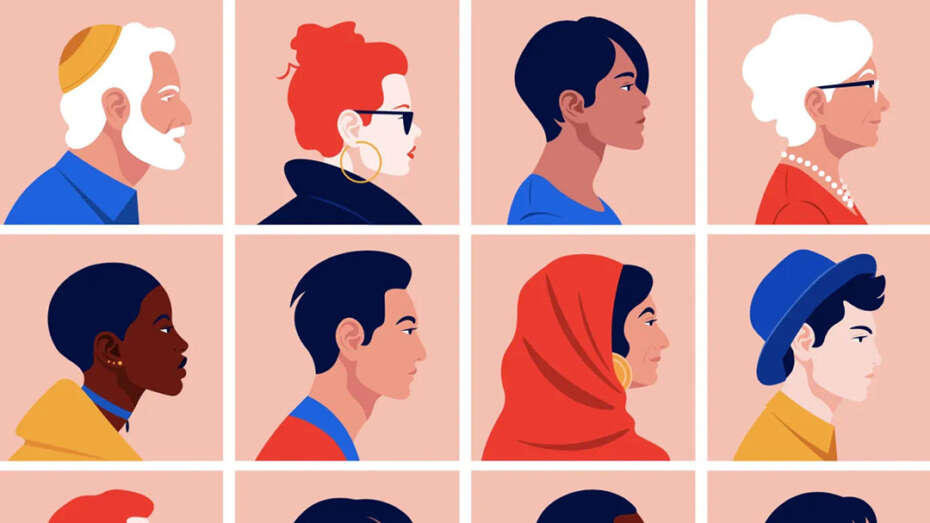“As a Black woman, I definitely have more of a desire for [reparations] to happen. But I do feel like everybody should be able to recognize that there is a debt to be paid to the descendants of African slaves.” – Kaylyn Goode, A New Deal for Youth Changemaker
In May of 2021, New Deal for Youth Changemakers publicly released their demands that reimagine life for young people. These demands direct policy makers, elected officials, and community leaders to engage young people intentionally and meaningfully in decision-making and to provide them with the power and resources to succeed. Through a framework of four tenets: abolition, decriminalization, liberation, and reparations, the Changemakers advocate for policies rooted in transforming systems, empowering communities, and uplifting young people.
Across the New Deal for Youth platform, reparations are a key guiding framework. As stated in the Changemakers platform, “We champion a holistic and ongoing approach to reparations that redresses both historical and ongoing traumas, including land theft, slavery, environmental racism, mass incarceration, forced migration, voter suppression, and family separation.” Reparations have been the topic of recent political discussion, with the Biden Administration supporting the study of reparations for Black Americans. The intention behind these reparations in the United States is to rectify the harm and trauma experienced by enslaved Africans and transferred generationally through systemic racism and discriminatory policies.
While serious policy discussion is fairly recent, the concept of reparations is not new. In 1865, the Civil War ended and through Special Field Order No. 15, formerly enslaved people were supposed to gain 40-acre parcels of land. However, following the assassination of President Abraham Lincoln, the order was revoked, and no land reparations were distributed. During World War II Japanese Americans were illegally forced to live in isolated camps following the attacks at Pearl Harbor and the subsequent war. In response to this violent neglect of civil rights, the U.S. government issued reparations to survivors in the amount of $1.6 billion. By understanding the successful implementation of reparations throughout history, we can better assess appropriate responses to the legacy of slavery that acknowledge the perpetual harm experienced by descendants of enslaved people.

19-year-old Kaylyn Goode is a firm believer in the importance of reparations. As a current undergraduate student at George Washington University and a New Deal for Youth Changemaker on the Democracy and Civic Engagement team, Goode understands the ways Black communities and young people must be engaged as decisions are made regarding reparations.
The case for reparations generally covers two areas, direct monetary distribution, and investments into Black communities. Goode’s vision for reparations is closely tied to these two forms, as she states, “One is monetarily, how can you pay descendants of African slaves in the US… [two is] giving communities the resources they need to level the playing field for equal opportunity in areas like education, healthcare, income.” Her identity as a young Black woman strongly shapes this vision, and she is an advocate for centering young Black voices in public policy.
Kaylyn Goode understands firsthand the impact reparations would have on her community and Black communities at large. However, too often young people are removed from decision-making power and Goode labels this as a barrier to comprehensive and inclusive legislation. “Youth, especially Black youth, should be in the center of the conversation because many of us don’t have the income that our parents or grandparents might have… Reparations would really impact us and future generations.”
While many people agree that the United States should rectify the continual harms caused by slavery, it can be difficult to identify concrete solutions. According to Goode, “It can be hard for people federally to decide on a monetary amount to give people, but there are so many ways that there is inequality in our school systems, justice systems, and healthcare systems, and addressing those would be more impactful than just writing Black people a check. So, I think there has to be a broader conversation about what can really serve our communities.”
Black youth like Kaylyn Goode are insisting that now is the time for action on reparations. To meaningfully include Black perspectives and opinions in decisions regarding reparations, we must tap into existing organizations that hold the trust of Black communities. Goode believes that reparations would be the most impactful with “community leaders leading roundtable discussions all around the country and reporting out.”
The introduction of H.R. 40 in 2019 builds on this idea and if passed would create a Commission to Study and Develop Reparation Proposals for African-Americans. To achieve social and economic justice, reconciliation must be created by and for Black Americans. A New Deal for Youth requires nothing less.
By Jacquelyn Sullivan – Original Article
